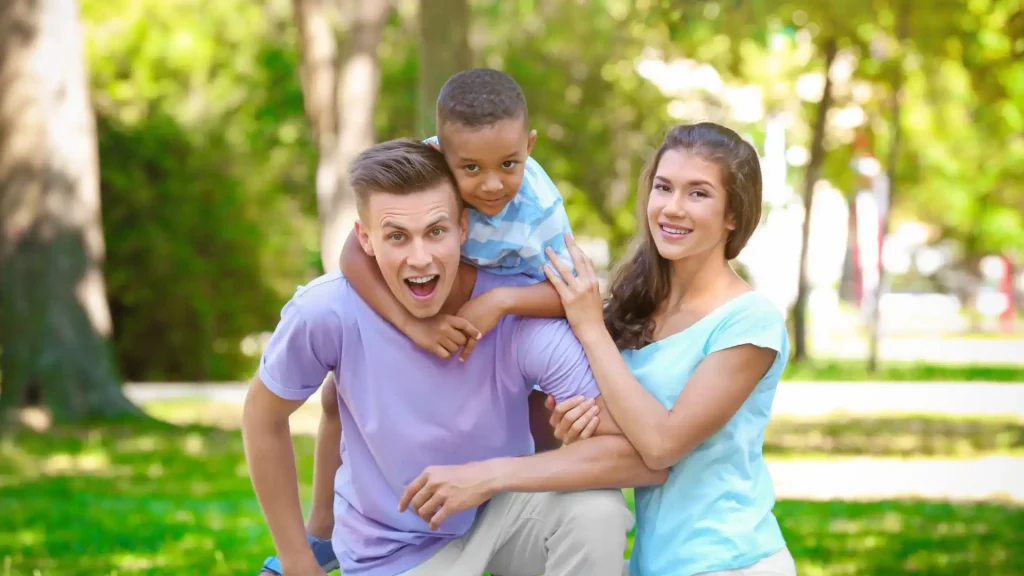
Whether you are facing a custody battle, trying to modify an existing agreement, or do not know where to begin, talking with an experienced child custody lawyer in West Lake Hills, TX, can make a huge difference. Call (512) 957-3450 today or contact us online to schedule a consultation with one of our experienced West Lake Hills family law attorneys.
Understanding Child Custody in Texas
Custody in Texas is different from other states. They do not actually use the word “custody”—it is called “conservatorship” instead. Under the Texas Family Code, Chapter 153, it has two parts: legal conservatorship and physical possession and access.
Legal conservatorship means who gets to make the big decisions for the child, such as school, medical information, and religion. Physical possession and access are who the child lives with and when the other parent spends time with them. In most cases, Texas courts assume both parents should share legal conservatorship unless there is a good reason not to.
But when parents can’t agree—or things start to get messy—it helps to have someone who knows how to handle it. A West Lake Hills child custody lawyer can help you determine what’s best for your family and stand up for what’s right for your child.
Types of Conservatorship in Texas
When it comes to conservatorship in Texas, there are a few different ways to set things up, depending on what’s best for the child and the parents’ situation.
- Joint Managing Conservatorship (JMC) is the most common arrangement. It means both parents share the rights and responsibilities when it comes to making decisions for the child. But keep in mind—this doesn’t always mean the child splits time 50/50 between homes.
- Sole Managing Conservatorship (SMC) gives one parent the authority to make all the big decisions. The other parent might still have visitation, but they don’t have a say in things like school or medical care.
- Possessory Conservator is a setup where one parent has scheduled time with the child but no decision-making rights. This might be ordered if there are concerns about the other parent’s ability to be involved in major choices.
Every case is different, and what works for one family might not work for another.
What Does the Court Consider When Deciding Who Gets Custody?
When a judge is looking at custody, it always comes down to the child’s best interests. That is the legal standard in Texas, and everything else builds on it. Courts will weigh things like:
- Each parent’s ability to care for the child
- The emotional and physical needs of the child now and in the future
- Any history of domestic violence or substance abuse
- Stability of the home environment
- The child’s preferences, if they are old enough (typically age 12 and up)
This is where a skilled child custody attorney in West Lake Hills can help. We know how to present the facts that matter, keep the focus on your child’s well-being, and allow the judge to see your role clearly.
Visitation Rights in Texas
Visitation (called “possession and access” in Texas) can get pretty detailed. The state has a Standard Possession Order (SPO), which lists weekends, holidays, summer vacations, and more. But it can be customized if you and your co-parent can agree to something different—and the court approves.
Some families choose week-on/week-off schedules, while others stick to the standard Friday-to-Sunday setup. It depends on work schedules, school routines, and your child’s needs.
We have worked with parents in all kinds of situations—from amicable co-parenting setups to highly contentious splits—and we will help you create a plan that works.
Fathers’ Rights in Texas
There is often a misconception that dads do not have the same rights as moms when it comes to custody. That is not true under Texas law. Fathers have the same legal standing to seek custody or visitation, but sometimes, they need to fight harder to be seen equally—especially if they were not married to the child’s mother.
At Smith & Bledsoe Family Law, we have worked with many dads who want to be there for their kids and stay involved. If you are looking for a father’s rights lawyer in Texas, we’re here to help.
Emergency Custody and Protective Orders
In some instances, emergency custody orders can be filed if your child’s safety is at risk. This might include situations involving abuse, neglect, or a parent attempting to take the child out of state without consent.
If you are worried about your child’s immediate safety, do not wait. Contact a legal guardianship lawyer or a divorce and child custody lawyer who can act quickly to file emergency motions. We have helped parents obtain temporary restraining orders and emergency custody when time is critical.
Modifying Custody Agreements

Under Texas law, custody agreements can be modified if circumstances change materially. That might sound vague, but a seasoned custody agreement lawyer can help show the court why a change is necessary and how it benefits the child.
Child Support and Custody
Custody and child support go hand in hand. The parent with the kids usually gets support, but how much depends on income, number of kids, insurance, and other elements.
We have helped clients, from setting up initial child support orders to enforcing or modifying them when things change. If you are dealing with both support and custody issues, it is essential to work with a child support and custody attorney who understands how these two areas intersect.
Frequently Asked Questions
If you are dealing with custody questions in Texas, it helps to understand how the process works and your options.
How is custody decided in Texas?
Texas courts focus on what is in the child’s best interests. Judges look at each parent’s involvement in the child’s life, their ability to provide a safe and stable home, and any potential risks, such as a history of abuse, neglect, or substance use. The goal is always to protect the child’s emotional, physical, and developmental well-being.
Can I get full custody?
Full custody—called sole managing conservatorship in Texas—is sometimes possible. If the other parent is abusive, has abandoned the child, or is unfit due to substance abuse, mental health issues, or instability, the court may award one parent full legal authority. A child custody attorney can help you understand if this applies to your situation.
What happens if my ex does not follow the custody order?
You can file an enforcement action in court. Judges do not take violations lightly, especially if they affect your parenting time or put your child at risk. Legal action may lead to makeup time, fines, or other penalties.
Do I have to go to court?
Not necessarily. Mediation or informal negotiation is often successful, but a judge will make the final decision if you cannot reach an agreement.
What if I want to move with my child?
Relocation can be tricky. Courts usually will not approve a move that limits the other parent’s access without a strong reason—like a job opportunity or safety concerns.
Every custody case is different, so if you are unsure about your rights or what steps to take next, talking with a family law attorney can give you the clarity you need.
Why Work with Smith & Bledsoe Family Law?
At Smith & Bledsoe Family Law, we have built our reputation on doing family law differently. That means no cookie-cutter strategies, no rushing you through the process, and definitely no judgment.
Our firm focuses exclusively on family law, which gives us a deeper understanding of what families in West Lake Hills face—especially when emotions are high and children are involved.
We are proud to offer personalized legal guidance rooted in compassion and backed by experience.
We also know that family law cases do not just live on paper. They live in your real life. So, we take the time to listen to your story, understand your priorities, and build a case reflecting the future you want to create for your kids.
Let’s Talk About Your Custody Case
Custody cases can be emotional and complicated, and it’s not always easy to know what to do next. If you are in West Lake Hills and looking for support, the team at Smith & Bledsoe Family Law is here to help. Whether you’re just starting out or things have already gotten difficult, we’ll work with you to find a practical path forward that protects your rights and your child’s well-being. Find our office on Google Maps and see client reviews.
If you have questions or want to discuss your situation, we’re just a call or message away. We’re here when you’re ready to take that next step.